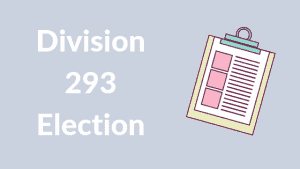Australian Superannuation
From 1 January 2020, eligible individuals with multiple employers can apply to opt out of receiving super guarantee (‘SG’) from some of their employers, to help them avoid unintentionally going over the concessional contributions cap. If appropriate for them, they should submit the relevant ATO form to apply for an SG employer shortfall exemption certificate, […]
Read MoreThe ATO has acknowledged that an incorrect excess non-concessional contribution (‘ENCC’) determination may issue due to a known system issue with the calculation of some SMSF member’s total super balance (‘TSB’). Editor: Recent super reforms have meant that individuals are restricted from making non-concessional contributions where their TSB equals or exceeds $1.6 million. This is […]
Read MoreThe ATO is reminding taxpayers and tax practitioners that the process to release money from super fund accounts to pay additional tax on concessional contributions (referred to as ‘Division 293’) changed on 1 July 2018. Since then, practitioners or their clients must send the Division 293 election form to the ATO, not to the super […]
Read MoreDivision 293 tax is an additional tax on super contributions which reduces the tax concession for individuals whose combined income and contributions are greater than the Division 293 threshold. Why do I have to pay this? Normally, contributions into a superannuation fund are taxed at 15% immediately. This is so when you turn 65 you will […]
Read MoreUnder the regulations, self-managed super funds (SMSFs) are not prohibited from carrying on a business, however the business must be: allowed under the SMSF’s trust deed, and operated for the sole purpose of providing retirement benefits for fund members. Note however that the rules governing SMSFs prohibit or limit some activities available to other businesses, […]
Read MoreSelf Employed super contributions rules have recently changed meaning that more Australians may be eligible to claim a tax deduction for putting money into super. Before June 30, 2017, if more than 10% of your income was sourced from salary or wages from an employer, you were rendered ineligible to claim any tax deduction for […]
Read More





